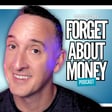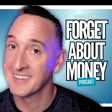
🧘 Money Tree Pose: Downward Debt and Upward Dollars 💸
Watch on YouTube and subscribe @forgetaboutmoneypodcast
🌟 A passionate yoga instructor from sunny San Diego, Danielle dives deep into her money habits, sharing the ups, downs, and transformative realizations that are reshaping her financial destiny.
🆓 Free Money Course: https://www.fiology.com/free-fiology-workbook/
Join Danielle on her eye-opening journey towards financial enlightenment in this unmissable episode!
From tackling pesky debts to dreaming big about geo-arbitrage adventures, get ready for a candid exploration of how she's bending her financial future towards success, all while maintaining a zen-like balance.. 🌟
What You'll Learn:
📘 Effective strategies for debt management and investment.
🧘 Insights into the financial aspects of being a yoga instructor.
🌏 How geo-arbitrage can significantly reduce living expenses.
💰 Techniques for maximizing income through diverse yoga offerings.
🤝 Importance of aligning financial and lifestyle goals in relationships.
Keywords: Financial Independence, Debt Management, Yoga Instructor, Geo-arbitrage, Investments, Danielle’s Journey, Money Habits, Teaching Yoga, Financial Stability, Couples Finance
Resources:
You are Badass book: https://a.co/d/0WiQKjX
🌟 Dive into this journey with Danielle and discover how aligning your financial habits with your life goals can lead to a more fulfilling and financially secure life. Don’t forget to like, subscribe, and comment with your own financial aspirations and insights! 🌟

